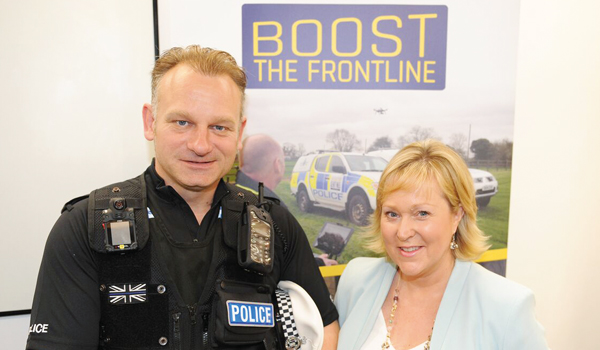Private healthcare gets officers back on duty
Bedfordshire Police is to pay for healthcare to help officers on restricted duties return to the front line. It has allocated £50,000 for two targeted healthcare pilots to help officers who have been injured or who are recovering from illness.
Bedfordshire Police is to pay for healthcare to help officers on restricted duties return to the front line. It has allocated £50,000 for two targeted healthcare pilots to help officers who have been injured or who are recovering from illness. For example, if an officer has to wait more than 12 weeks for a diagnosis through a consultation or a test, such as a MRI (magnetic resonance imaging) scan, they may qualify for the fees to be paid by the force. The scheme is also available for minor surgery, if success is virtually guaranteed. Officers having to wait for more than four weeks for physiotherapy can also apply for paid treatment. The Boost the Frontline project is part of Bedfordshire police and crime commissioner (PCC) Kathryn Holloways police and crime plan. Ours is truly a thin blue line and I have to do everything I can to offer support to officers to get them back to full health as soon as possible, she said. I know very well, having had serious back injuries myself, that an acute injury can become a chronic one if left untreated and am determined this should not happen to our officers, causing them greater pain and distress as well as delaying a return to full duties. The first officer to have benefited from the targeted healthcare scheme is PC Carl Klein, who is back at work after his hernia repair operation was funded by the force. He said: I feel more supported with the Boost the Frontline project. It will help fellow officers get the support and treatment they need sooner to return to full duty, serving the people of Bedfordshire. Ms Holloway said that the number of sick days among police officers had fallen by 700, or 3.2 per cent, since she took up her role last May, which is worth £100,000 in cash terms. But this isnt just about the money. I have a duty of care to the officers of Bedfordshire Police and I take it seriously, as does the chief constable, she added. Ms Holloway has also unveiled a new arrangement with the University of Bedfordshire to allow officers on light and restricted duties to receive state-of-the-art treatments in the Sports Science Department to help them get back to full health. The university has the most amazing facilities, which clearly I cant afford to provide in-house through the occupational health department. Our officers need specialist help with recuperation and the university wants to engage with the community, so this scheme will be of genuine benefit to us all, she said. The universitys head of School of Sport Science and Physical Activity, Dr Andrew Mitchell, said: We are delighted to be working with Bedfordshire Police on research that we hope will improve the health, fitness and wellbeing of police officers and staff within the force. Through our research we hope to be able to give police officers and staff access to the help and support they need that may not be available to them within existing occupational health services and the NHS. The force said the first two police officers, including one recovering from a serious riding accident, have been identified to benefit from the universitys specialist help. Boost the Frontline was the result of a one-year study by Simon Bullock, a former deputy chief of staff in the Bedfordshire Office of the PCC and director of CoPaCC (Comparing Police and Crime Commissioners), which recommended ways to make the most of the countys police officers and help them to full health, when injured or unwell.


